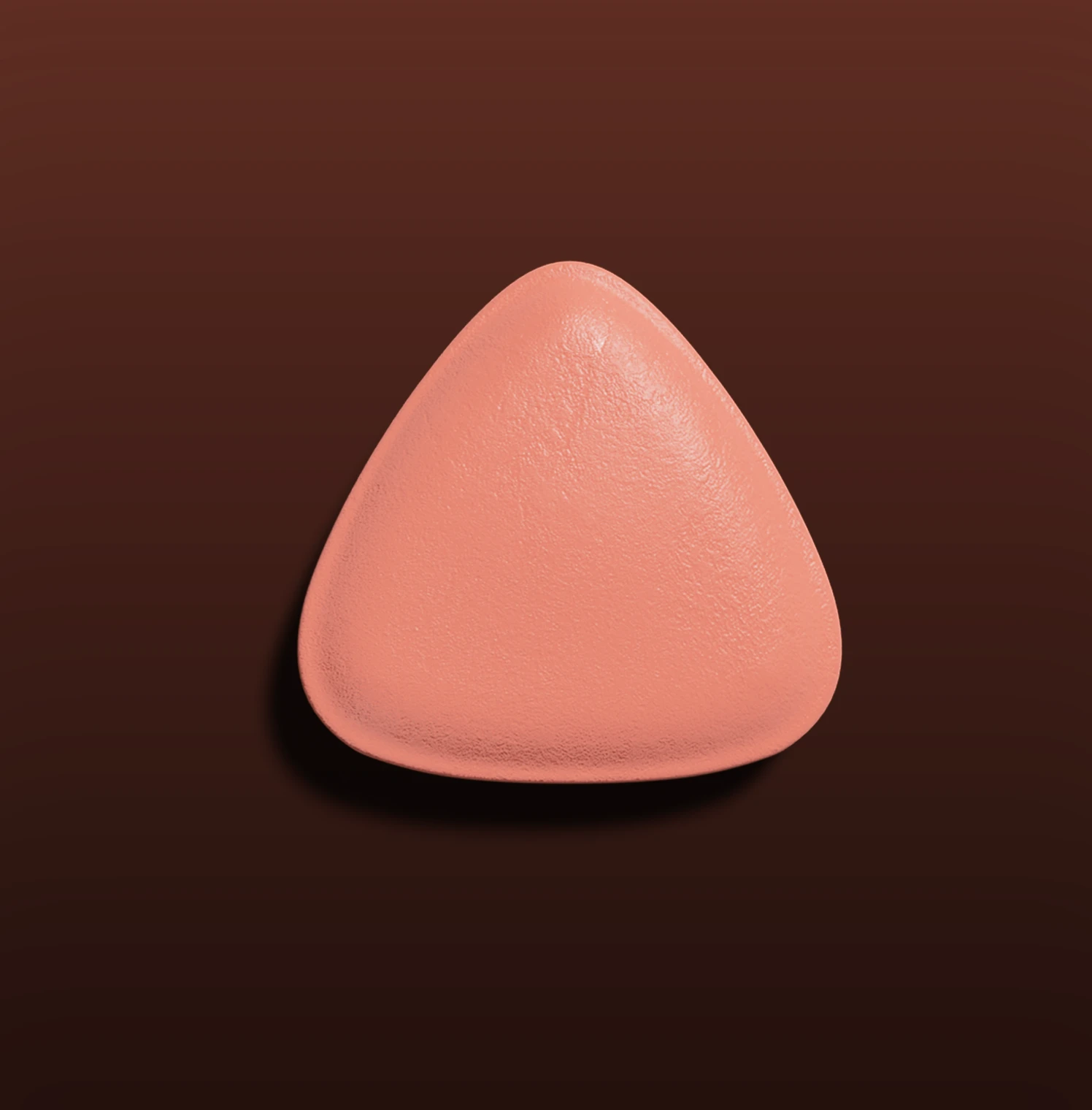Contents
Most men hear the words “erectile dysfunction” and immediately think about circulation, aging, and low testosterone, but what if the problem started above the belt? Men’s mental health plays a far greater role in intimacy and performance than most realize. Now, it’s time to break the silence and rethink how we deal with ED.
ED Isn’t Just About Testosterone and Circulation
While testosterone is a key component in erections, it’s not the ultimate driver. Men with healthy hormone levels still experience erectile dysfunction, but not because their body is broken. In many cases, it’s because their mind is overwhelmed. That’s why traditional ED medications don’t always work when the problem is psychological.
As one man put it: "My testosterone is high-normal, but ED still showed up. The specialist said T shots usually don’t fix it.” So, this isn’t just a hormone issue. Often, it's about mental health and rooted in anxiety, fear, self-esteem, and stress.
When we asked men what their biggest blockers were, the results spoke loud and clear:
16% pointed to relationship problems
31% mentioned mental health
Physical health didn’t even make the list.
For decades, erectile dysfunction has been blamed on everything from diet and lifestyle to blood flow and bad genes. And while those issues might be factors for some men, 1 in 10 men struggle with mental health and its impacts on intimacy, confidence, and performance.
Psychological ED: The Missing Link in the Mind-Body Connection
Erectile dysfunction and performance anxiety are sometimes one-time events. More often, though, they become part of a cycle — a feedback loop of fear, frustration, and avoidance. One thing leads to another, creating pressure that can short-circuit arousal and kill confidence.
This loop is well-known in somatic therapy as the heart-pelvis split. It’s when anxiety floods the nervous system, which causes the body to disconnect. In other words, you get stuck in your head when you need to be in your body.
Here’s what men said when we asked them how ED made them feel:
100% of men on Facebook said it made them feel frustrated.
42% of men on Instagram said frustrated, and 25% said avoidant.
Another 17% said they felt anxious when they couldn’t perform.
One man commented, “I had ED once and now I’m spiraling. I feel like a failure.” Unfortunately, erectile dysfunction doesn’t always begin or end in the bedroom. Nearly 25% of the men we polled said relationship dynamics were also a major factor.
“My relationship felt off; sex faded. Therapy helped me realize I wasn’t feeling connected,” said one man. When emotional intimacy decreases, physical intimacy often disappears with it. Therefore, ED could be sign that something deeper needs attention.
Avoidance, Shame, and the Silent Sabotage of Intimacy
Lingering erectile dysfunction affects more than just your performance. It can reshape behavior, self-perception, and relationships. According to a 2019 study in the Journal of Clinical Medicine, sexuality is an intrinsic human motivator encompassing personal identity and emotions like trust and desire.
Many men begin avoiding sex and intimacy because they’re afraid of repeated performance failures. In our poll, 63% of men on Facebook admitted they avoided sex with their partners because of ED or ED symptoms. One man confessed, “I avoid sex sometimes just to dodge the chance of failing again.”
This pattern of avoidant behavior can cause shame, damage self-esteem, and drive a wedge between otherwise happy couples.The longer the pattern continues, the harder it becomes to rebuild confidence and trust.
Why Men Are More Open to Therapy Than You Might Think
Outdated stereotypes and mental health stigmas may suggest men are reluctant to get help with mental health and ED. However, support is no longer seen as a weakness but a smart strategy. According to our poll, more than 75% of men are either in therapy or open to it. Moreover, the men in our community reported positive experiences with core genetics, breath work, mindfulness practices, and couple’s therapy focused on emotional intimacy and communication.
Men aren’t looking for quick fixes anymore. They want to target and improve mental health for better relationships, arousal, and performance. Overcoming psychological ED and performance anxiety is a process requiring tools to reclaim sexual health from the inside out.
Using erectile dysfunction medication doesn’t mean you’re broken; it means you’re brave, savvy, and smart. It also means you’re building a bridge between fear and action — a clear sign you’re a compassionate and self-aware partner. “Short-term, I needed a win. Long-term, I’m doing the deeper work,” said one man in our poll.
Where Rugiet Fits: Support While You Heal
ED medications like Rugiet can provide fast and effective sexual health support. These meds help men to stay present, supercharge arousal, and heal performance anxiety, shame, or unresolved relationship stress. Rugiet uses a carefully curated combination of ingredients, including apomorphine — a powerful dopamine agonist that triggers arousal for a mind-body performance.
Final Thoughts
Using erectile dysfunction medication means building a bridge between mind and body, fear and action. ED pills can help restore function while therapy restores connection. You no longer must choose one or the other.
Sources:
Montejo A. L. (2019). Sexuality and Mental Health: The Need for Mutual Development and Research. Journal of clinical medicine, 8(11), 1794. https://doi.org/10.3390/jcm8111794
Rajfer J. (2000). Relationship between testosterone and erectile dysfunction. Reviews in urology, 2(2), 122–128. https://pmc.ncbi.nlm.nih.gov/articles/PMC1476110/
Johns Hopkins Medicine. (2025). Erectile Dysfunction. Www.hopkinsmedicine.org. https://www.hopkinsmedicine.org/health/conditions-and-diseases/erectile-dysfunction
Xiao, Y., Xie, T., Peng, J., Zhou, X., Long, J., Yang, M., Zhu, H., & Yang, J. (2023). Factors associated with anxiety and depression in patients with erectile dysfunction: a cross-sectional study. BMC psychology, 11(1), 36. https://doi.org/10.1186/s40359-023-01074-w
Anxiety & Depression Association of America. (2023, January 5). Men’s Mental Health | Anxiety and Depression Association of America, ADAA. Adaa.org. https://adaa.org/find-help/by-demographics/mens-mental-health
Huri, H. Z., Mat Sanusi, N. D., Razack, A. H., & Mark, R. (2016). Association of psychological factors, patients' knowledge, and management among patients with erectile dysfunction. Patient preference and adherence, 10, 807–823. https://doi.org/10.2147/PPA.S99544
Hedon F. (2003). Anxiety and erectile dysfunction: a global approach to ED enhances results and quality of life. International journal of impotence research, 15 Suppl 2, S16–S19. https://doi.org/10.1038/sj.ijir.3900994
Marivoet, D. (2020, October 29). Pelvic-Heart Integration : Heart in Sexuality - International Institute for Bodymind Integration. International Institute for Bodymind Integration. https://www.bodymind-integration.com/pelvic-heart-integration-heart-in-sexuality/
Erectile dysfunction: Find out how it’s linked to heart disease. (n.d.). Mayo Clinic. https://www.mayoclinic.org/diseases-conditions/erectile-dysfunction/in-depth/erectile-dysfunction/art-20045141
Chatmon B. N. (2020). Males and Mental Health Stigma. American journal of men's health, 14(4), 1557988320949322. https://doi.org/10.1177/1557988320949322
Dewitte, M., Bettocchi, C., Carvalho, J., Corona, G., Flink, I., Limoncin, E., Pascoal, P., Reisman, Y., & Van Lankveld, J. (2021). A Psychosocial Approach to Erectile Dysfunction: Position Statements from the European Society of Sexual Medicine (ESSM). Sexual medicine, 9(6), 100434. https://doi.org/10.1016/j.esxm.2021.100434


